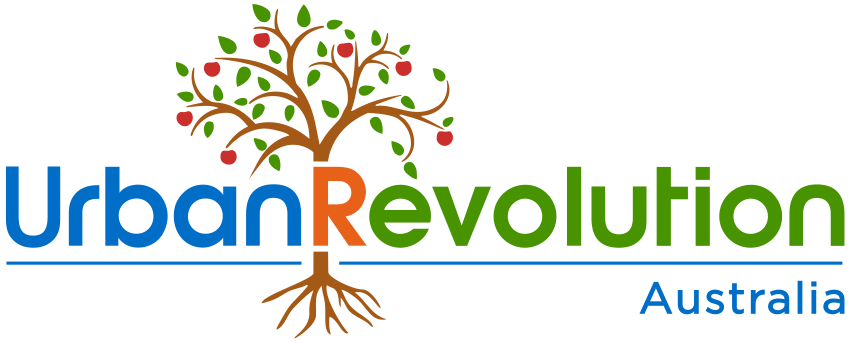International Composting Awareness Week: Sunday 2 May - Sat 8 May 2021
International Compost Awareness Week Australia (ICAW), is a week of activities, events and publicity to improve awareness of the importance of compost, a valuable organic resource and to promote compost use, knowledge and products. Originating in Canada and now celebrated in Australia, US, and the UK as well, International Compost Awareness Week runs from Sunday 2nd to Saturday 8th May 2021. The 2021 theme is “Better soil, better life, better future”.

International Composting Awareness Week is celebrated around the world
Why is Composting Our Food Waste So Important?
If food waste were a country, it would be the world’s third-largest emitter of greenhouse gases and in Australia alone, about 3% of our total greenhouse gas emissions (which is as much as our Aviation Industry), comes from organic matter rotting in landfill.
Each year, the average Australian household produces 523kg of food waste. Nationally, that amounts to over 4 million tonnes of food waste – which equates to 7.6 million tonnes of carbon dioxide (CO2) being released into our atmosphere every year and that doesn’t include other organic material like cardboard, paper and garden waste.

Food waste can be easily composted in a worm farm
At Urban Revolution, we aim to educate and inform people on the ways that they can help tread a little lighter on the planet and composting is our passion project. Through our urban composting workshop, we aim to teach people the different methods of composting, and we also sell a wide range of innovative composting products in our Perth eco and garden store. Our founder and composting queen, Jo Bussell, is a former oil and gas engineer, who changed paths when she discovered permaculture and started learning about how composting can help to heal our earth over 15 years ago.

Jo Bussell presenting composting workshops in Perth
Most people think that our food waste breaks down in landfill, the same as it would in a compost system. Unfortunately this is simply not the case. The bigger problem is that when tightly packed food waste and organic matter begin to breakdown in landfill, it happens in an environment without oxygen and this decomposing waste releases methane. This greenhouse gas has an impact 25 times greater on climate change than CO2.
The other impact is that this rotting organic matter in landfill combines with heavy metals, and other chemicals from other waste materials (most notably e-waste) to create a toxic sludge that can find its way into our ground water, poisoning our water supply.
Of course, all of this happens after the already long and resource-intensive journey that our food has already been on before it even gets scraped off our dinner plate into the bin, by way of water, fertilisers, energy, refrigeration, storage, packaging, transport and fuel to grow the food you buy from the shops to feed your yourself and your family. In fact, food waste costs the Australian economy $20 billion annually.
What Can I do to Help Reverse Climate Change?
The good news is that the solution to these problems is not only so simple, but the flow on effects of the solution can quite possibly go a long way towards reversing two of our biggest concerns with climate change – sequestering carbon out of our atmosphere and into the ground, and restoring our rapidly depleting top soil, which at current rates, means that our farmable soil will run out within 60 years.
This is where composting comes in and it is one of the simplest ways that every person on the planet, whether they live on a farm or in a tiny city apartment, can reduce their environmental footprint. Composting will help eliminate those greenhouse gases being created by our food and garden waste in landfill and instead, sequester atmospheric Carbon back into our soil, as well as make the rich and vital soil that grows healthy and vibrant plants from our recycled waste.
Compost is the natural recycling process of organic matter, created through the decomposition of plant and animal material. When no further decomposition occurs, we are left with humus – a dark, sticky substance which is the glue that holds soil particles together to create structure. Humus also improves water retention (particularly important in our drought-prone climate) and increases microbial diversity to hold nutrients in the soil – it is the ultimate soil input! Humus is composed of carbon, which remains stable in the soil, if left undisturbed, almost indefinitely. When we compost, we are literally doing carbon sequestration.
This link takes you to a great TED talk on the importance of Humus.
Composting also saves you money and water as you can create your own moisture retentive soils, fertilisers and soil mixes. Imagine if every person on earth committed to managing and composting their household’s organic waste - it’s a win-win for us and the planet!
At Urban Revolution, we aim to educate and inform people on the ways that they can help tread a little lighter on the planet, and composting is our passion project. Through our composting workshops in Perth, we aim to teach people the different methods of composting relevant to their living situation. We believe there is a method suitable for everyone – whether you have a balcony garden in an apartment, through to acreage, or whether you have no garden at all.
We cover composting options such as Bokashi Composting, Vermicomposting (Worm farming), Cold and Hot Composting and Pet Waste Composting, as well as how to access the Sharewaste app which gives you access to people in your area who will happily take your organic waste if you are unable to commit to composting for whatever reason.
Urban Revolution is a Perth eco store, and our staff are all passionate about sustainability and treading lightly on our planet. We invite anyone to attend one of our composting workshops, or even pop into the store or reach out via socials for any questions or advice that you need to get you on your composting journey.
References:
https://compostrevolution.com.au/australia-wide/why-compost/
The Urban Composting Guidebook - by Jo Bussell and the Urban Revolution Team
www.compostweek.com.au






Leave a comment (all fields required)